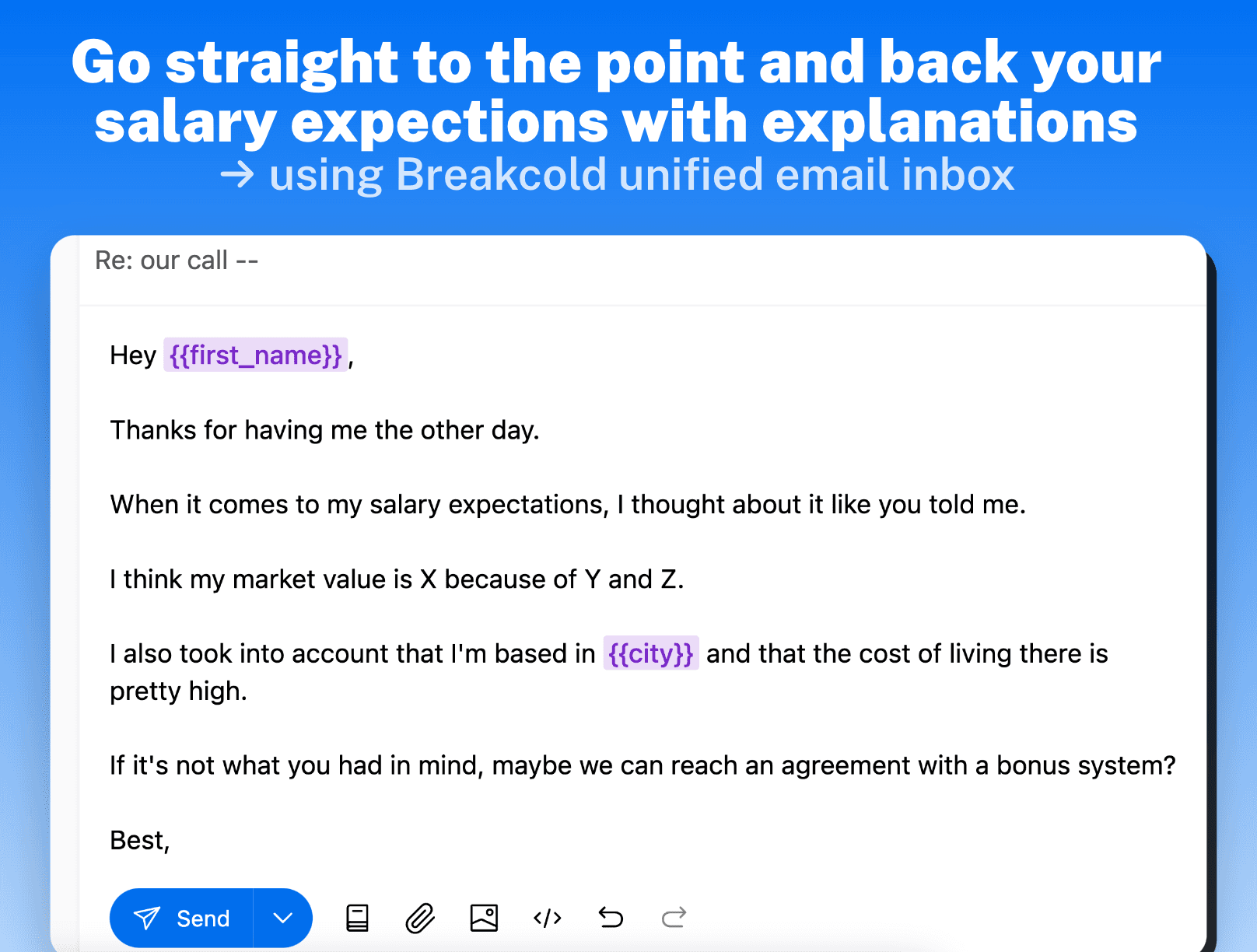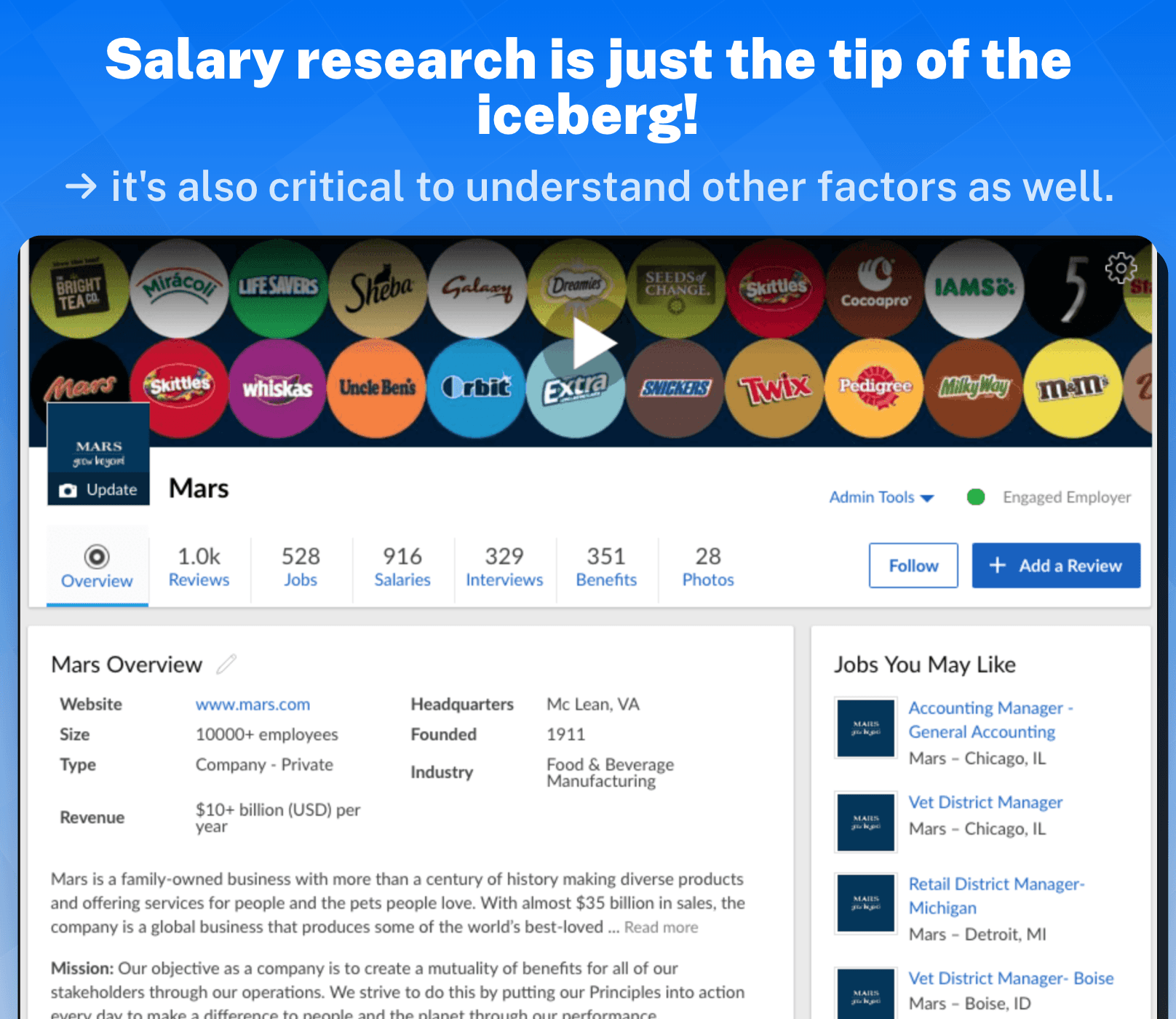
Whether it be an introduction, salary negotiation, or a raise request — these conversations become all the more trickier when they take place over email. What awaits you is a delicate tango between ensuring fair compensation for your skills and experience while not pricing yourself out of a potential job opportunity. Nuances will be lost, intentions misconstrued, and, if all goes well, an offer waiting for you at the end of it.
In this guide, we'll explore strategies for answering salary expectations in an email in a professional and effective manner. And if you're in need of an email template you can find ours at the end of the blog.
Understanding the Importance of Salary Expectations
Before diving into the specifics of how to answer salary expectations in an email, it's crucial to understand why employers ask this question. Primarily, employers want to ensure that your expectations align with their budget. If there's a significant discrepancy, it's better for both parties to know this early in the process. Additionally, your salary expectations can give employers insight into how you value your skills and experience.

However, it's important to remember that salary is just one component of your overall compensation package. Other factors, such as benefits, work-life balance, and opportunities for growth, can also significantly impact your job satisfaction. Therefore, when discussing salary expectations, it's essential to consider the entire package.
Preparing Your Response
Before you can effectively answer the question of salary expectations, you need to do your homework. This means researching industry standards, understanding your value in the job market, and considering your personal financial needs. Listed below are some steps to guide you:
Research Industry Standards
Understanding the typical salary range for your role in your industry and geographic location can give you a solid starting point. Websites like Glassdoor, Payscale, and the Bureau of Labor Statistics can provide valuable information. Remember, these figures are averages, so they may not perfectly reflect your situation.

Factors like company size and its financial health are important to consider. A startup may not be able to offer the same salary as a large corporation, but they might offer other perks like equity or flexible work hours.
Understand Your Value
Your skills, experience, and qualifications all contribute to your value in the job market. If you have specialized skills or extensive experience, you may be able to command a higher salary. Make a list of your unique selling points to justify your salary expectations.
Also, consider your current salary. While it shouldn't dictate your future earnings, it can serve as a reference point. However, if you're significantly underpaid, don't feel obligated to base your expectations on your current salary.
Consider Your Financial Needs
Finally, consider your personal financial situation. What salary do you need to cover your living expenses, save for the future, and maintain a comfortable lifestyle? While you shouldn't share these details with potential employers, they can help inform your salary expectations.

Communicating Your Salary Expectations
Once you've done your research and have a clear idea of your salary expectations, it's time to communicate them in an email. Here are some tips:
Be Professional
It goes without saying that it's always important to remain graceful and professional at all times. Whether your declining an offer or sending a follow-up email, avoid using overly casual language or emoticons. Remember, this is a business negotiation, so treat it as such.

Start your email by thanking the employer for the opportunity and expressing your interest in the role. This sets a positive tone and shows that you're serious about the opportunity.
Be Clear and Concise
Clearly state your salary expectations, but avoid going into too much detail. You don't need to justify your expectations in the initial email. If the employer wants more information, they'll ask.

Keep your email concise. Stick to the point and avoid unnecessary information. This shows respect for the employer's time and keeps the focus on your salary expectations.
Be Flexible
While it's important to know your worth, it's equally important to show flexibility. Indicate that you're open to negotiation and willing to discuss the entire compensation package. This shows that you're a team player and willing to find a solution that works for both parties.
Conclusion
Remember, regardless of the platform (email, LinkedIn, etc.), the same rules apply: to open the conversation around salary expectations, not to finalize it. By approaching this topic with research, professionalism, and flexibility, you can effectively communicate your salary expectations and move one step closer to your ideal job offer.
P.S. Once all negotiations have come to a satisfying conclusion for all parties involved, don't forget to send a thank you email for a lasting gesture of goodwill (trust us, it's worth the trouble).




























































































































































































































































































































































































































































































































































































































































































































